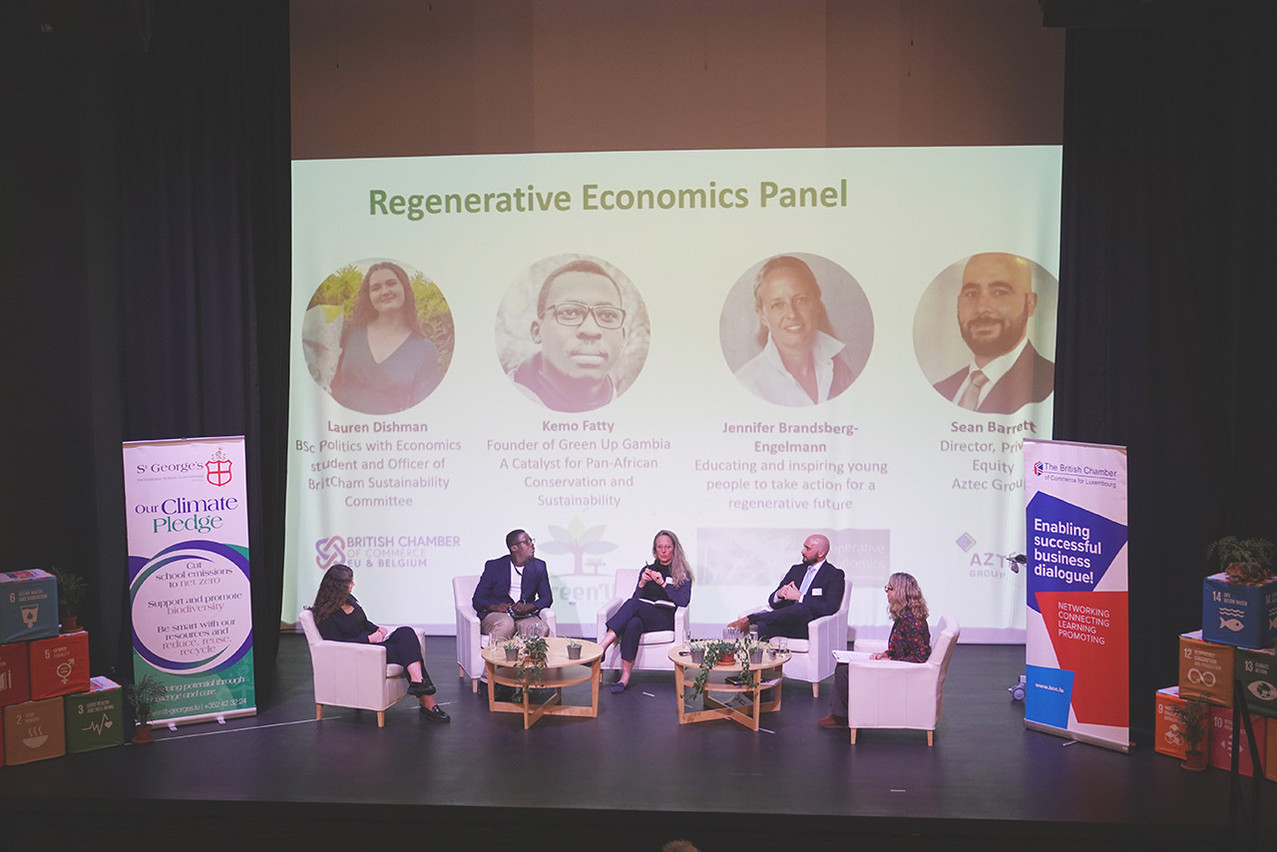Guest speaker Jennifer Brandsberg-Engelmann, a teacher of economics, business management and environmental systems and societies for more than 25 years, discussed the role of business in regenerative economic transformation in her keynote address “Regenerative Economics: Can we get inside the doughnut?”
“Regenerative economies strengthen social and ecological systems,” Ms Brandsberg-Engelmann said. “They take their cues from the way nature functions, emphasising circularity, reciprocity and sufficiency. These values stand in stark contrast to our current linear, extractive and endlessly and aimlessly growing economies.
“Especially in light of recent political developments, the connection between caring economies, thriving ecosystems and healthy civil societies seems clearer than ever. Businesses have an indispensable role to play in the transition to a regenerative economy. It's important that economics and business education moves with the times so that current and future business leaders have the skills and mindsets to get us there.”
Chair of the British Chamber of Commerce Sustainability Group , who gave the welcome address, explained how many people think of economy as a linear process of taking resources, transforming them, and using and disposing of them while focusing solely on profit.
If we want to give a future to our planet and the people after us, we need to move to a regenerative economy approach where we prioritise the health of the planet and its inhabitants to ensure that nobody is left behind and that collectively we don’t use more than what our planet can offer
The event, which brought together businesses, schools and experts, included a panel discussion with experts in sustainable development, funds administration, sustainable policy and sustainability education.
sustainability coordinator, Anne-Marie McHugh, said the event aimed to inspire businesses and education to keep innovating for sustainability and to promote future connections beyond the classroom.
“As St George’s alumna Lauren Dishman explained during our panel session, there is clear gap between the reality of the business world, where transformation to sustainable finance is unavoidable and how the model is prioritised in economics curricula at universities.”

